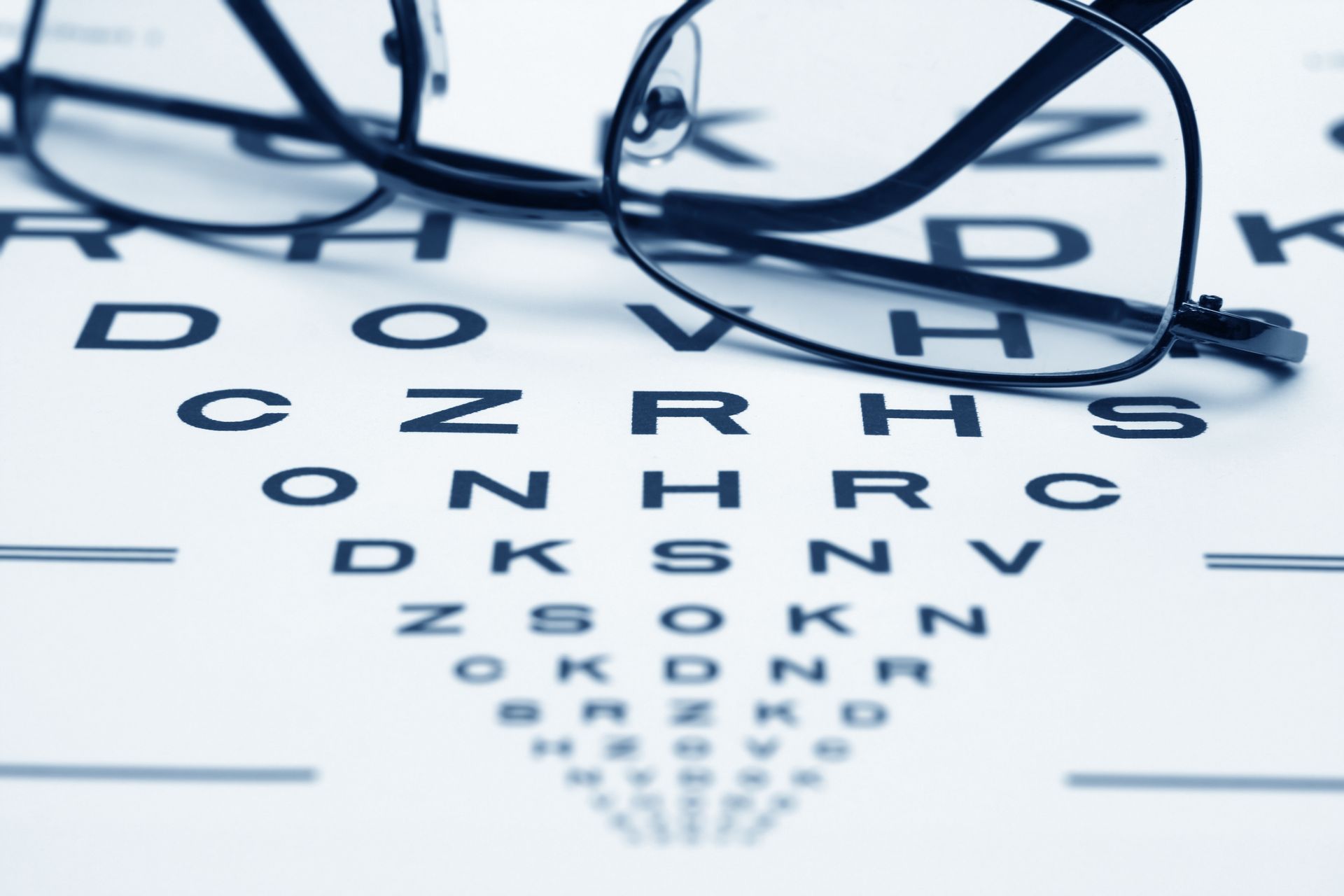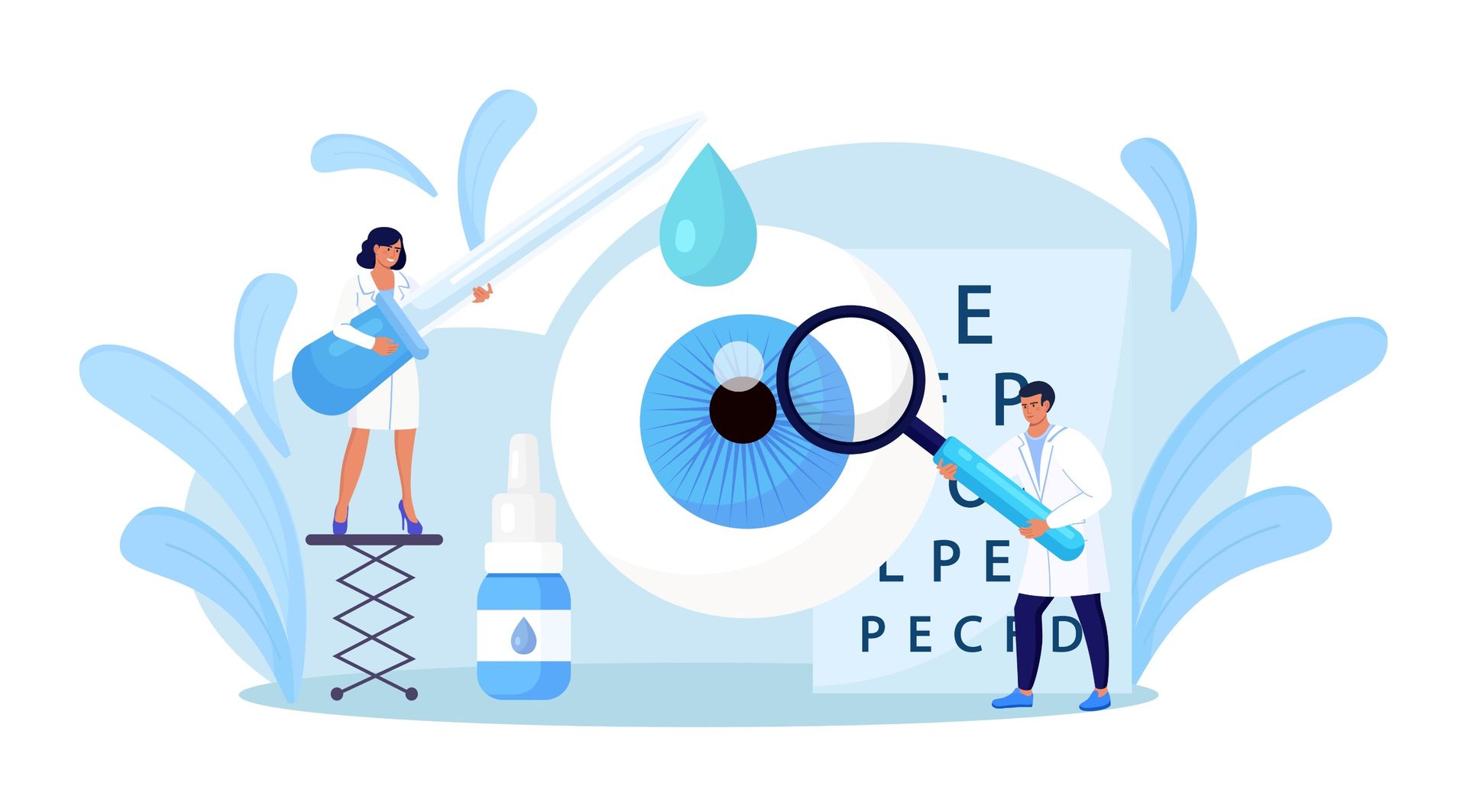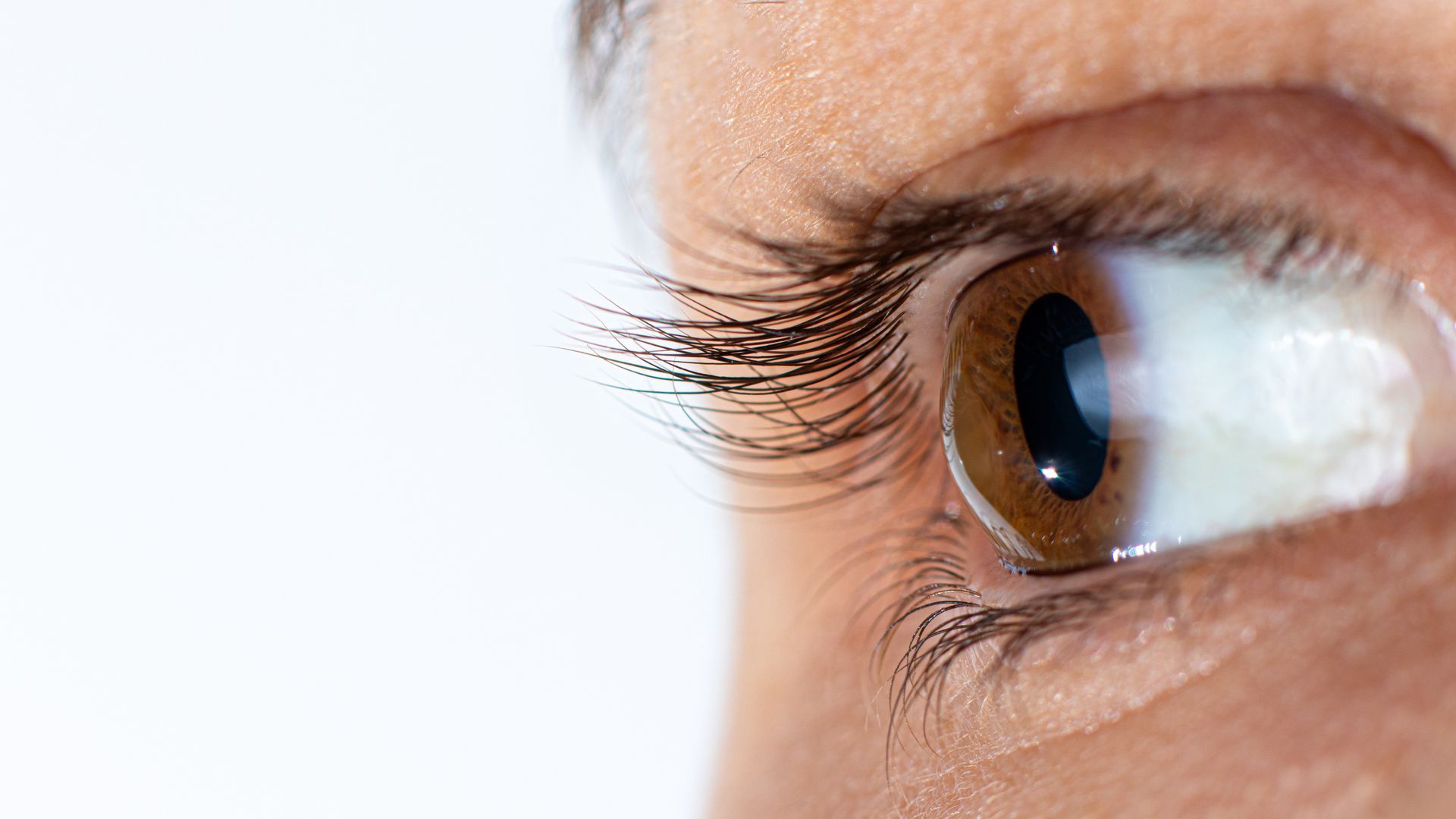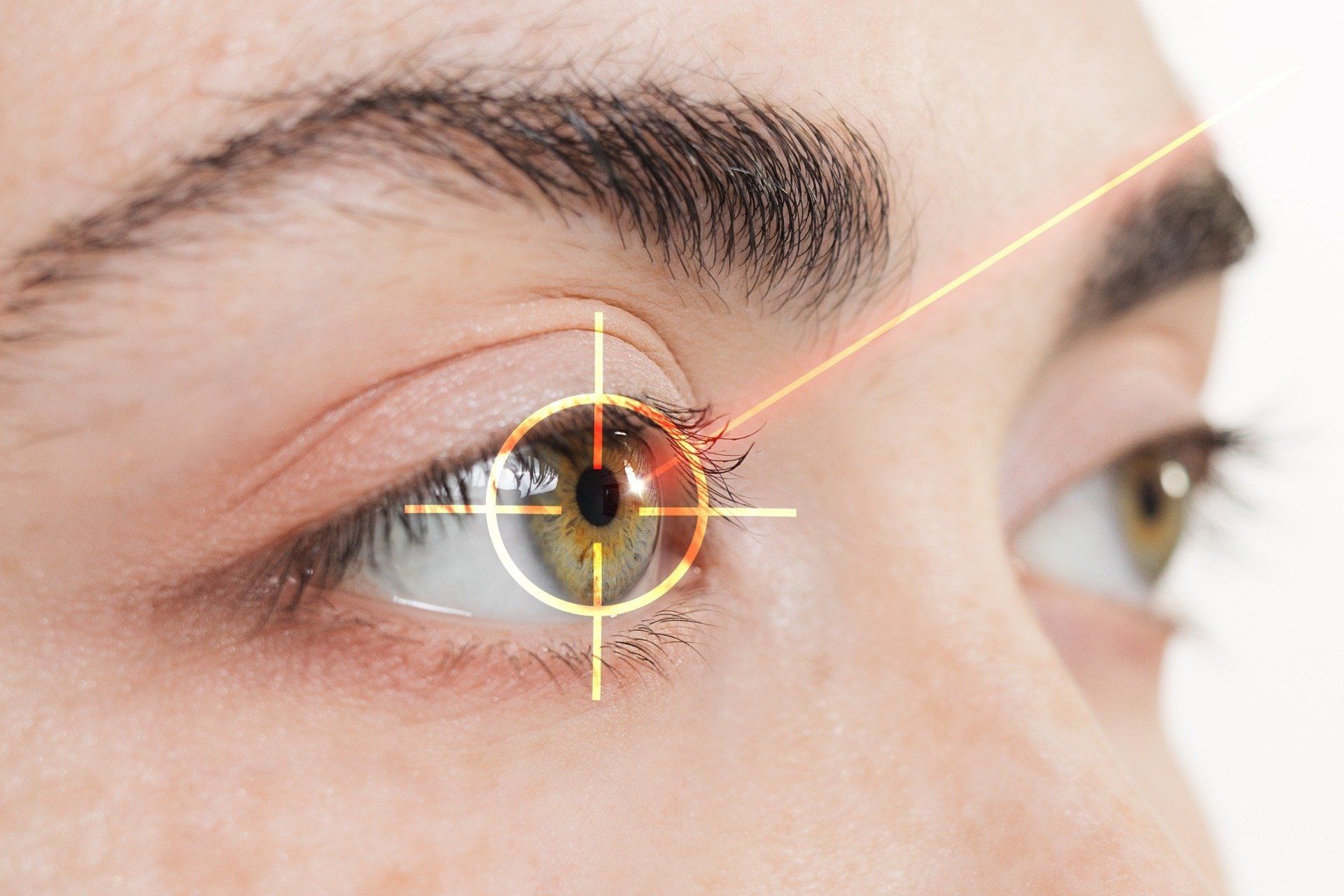Training Eyes After Cataract Surgery
Cataracts occur when a cloudy area forms on the eye’s natural lens – which is supposed to be crystalline clear. The clouding is caused by proteins breaking down and clumping together in the lens, which is a normal part of the aging process. Without treatment, the cataract grows worse.
As much as we hate to admit it, cataracts are extremely common in older patients. According to the National Eye Institute, cataracts affect nearly 25 million people in the United States alone. Not only that, but half of all patients above the age of 75 either have or already had cataracts.
The good news is cataract surgery can restore a patient’s vision by replacing the clouded lens with an artificial lens – known as an intraocular lens. The procedure is done on an outpatient basis (inside the eye doctor’s office) and generally takes less than one hour to complete.
How Long Does it Take to Recover From Cataract Surgery?
After having cataract surgery, patients are allowed to go home that same day and most patients will notice improved vision immediately. With that said, it’s normal to experience grittiness, watery eyes, light sensitivity, blurred vision, and eye irritation following cataract surgery.
The good news is most of those side effects will disappear within a few days. Your eye doctor might also have you wear an eye shield over the treated eye, but this can usually be taken off the following day. All in all, expect the eyes to fully recover over the course of 4-6 weeks.
During that time, you’ll have several follow-ups with your eye doctor to keep an eye on the progression. The side effects will lessen and vision will continue to improve while the eyes fully heal. By the time they’ve fully recovered, your vision will be better than it was pre-surgery.
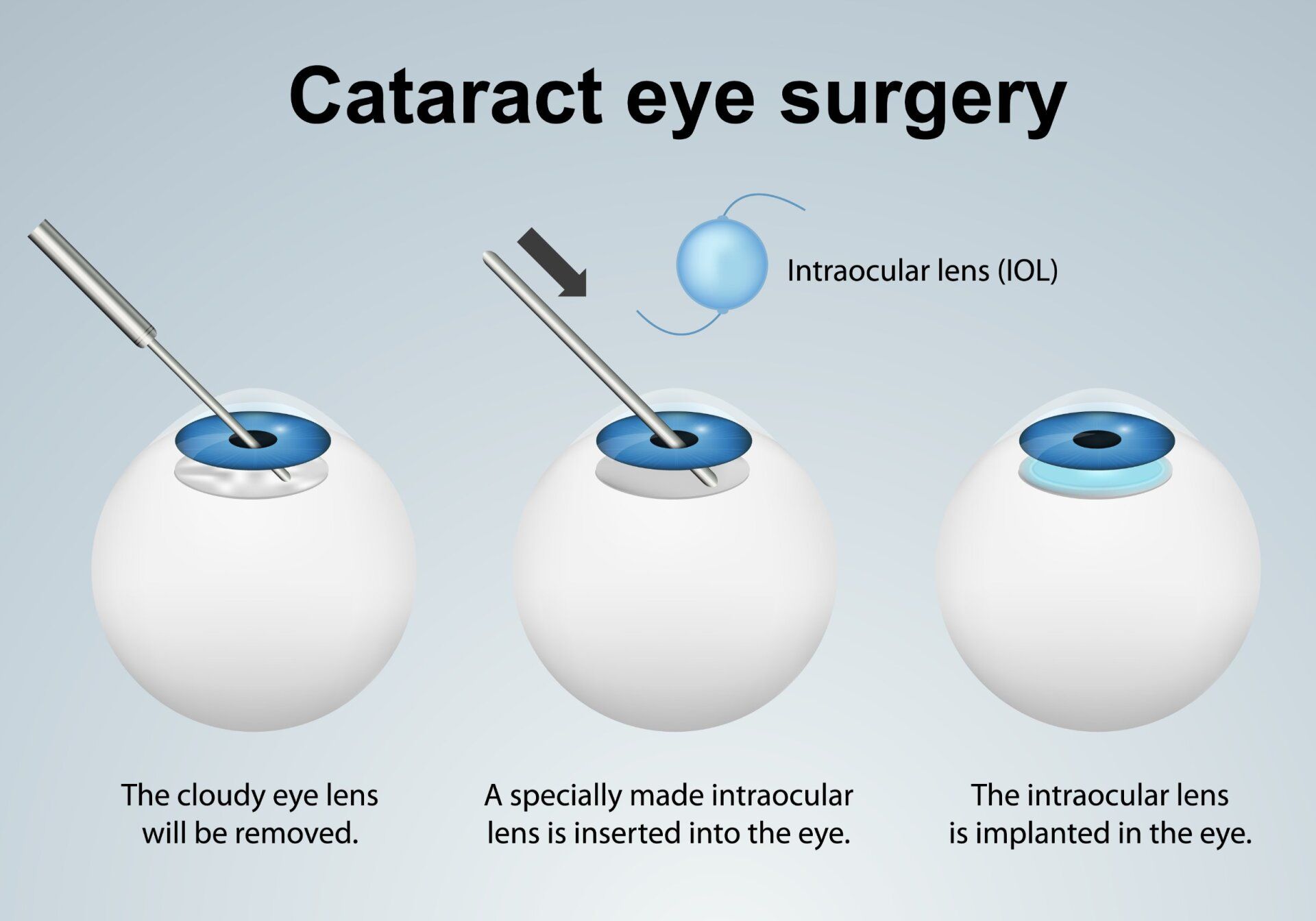
Do’s and Don’ts Following Cataract Surgery
After undergoing cataract removal surgery, your eye surgeon will have strict directions and guidelines for you to follow. Following these directions is essential to the recovery process – it can help minimize the amount of time it takes for the eyes to heal and vision to improve.
Let’s first take a look at some of the most prominent things you CAN’T DO following cataract surgery:
- Avoid rubbing, scratching, touching, or itching your eyes
- Avoid getting soap, shampoo, or water in your eyes
- Avoid driving until your doctor says it’s safe to do so
- Avoid any exercise, physical activity, or strenuous housework
- Avoid wearing eye makeup (mascara, eyeliner, eyeshadow)
- Avoid swimming or getting in the hot tub
- Avoid areas with a lot of dirt, dust, pollen, or wind
Now, let’s take a look at some of the most prominent things you CAN DO after cataract surgery:
- Apply eye drops as directed by your doctor
- Relax and take it easy for a few days, if not a week or two
- When you go to bed at night, wear your eye shield
- Take a bath or shower, so long as you keep water out of your eyes
- Read books, watch television, use a computer, play video games
- Wear sunglasses when you walk outside, especially on a sunny day
- Eat a healthy, well-balanced diet on a regular basis
- Make sure you’re getting enough quality sleep every night
If the side effects or your vision worsen at any point during the recovery process, don’t hesitate to contact your eye doctor. You should also seek immediate help if you experience eye pain, eye redness, blurry vision, eye irritation, or any other vision problems while recovering from cataract surgery.
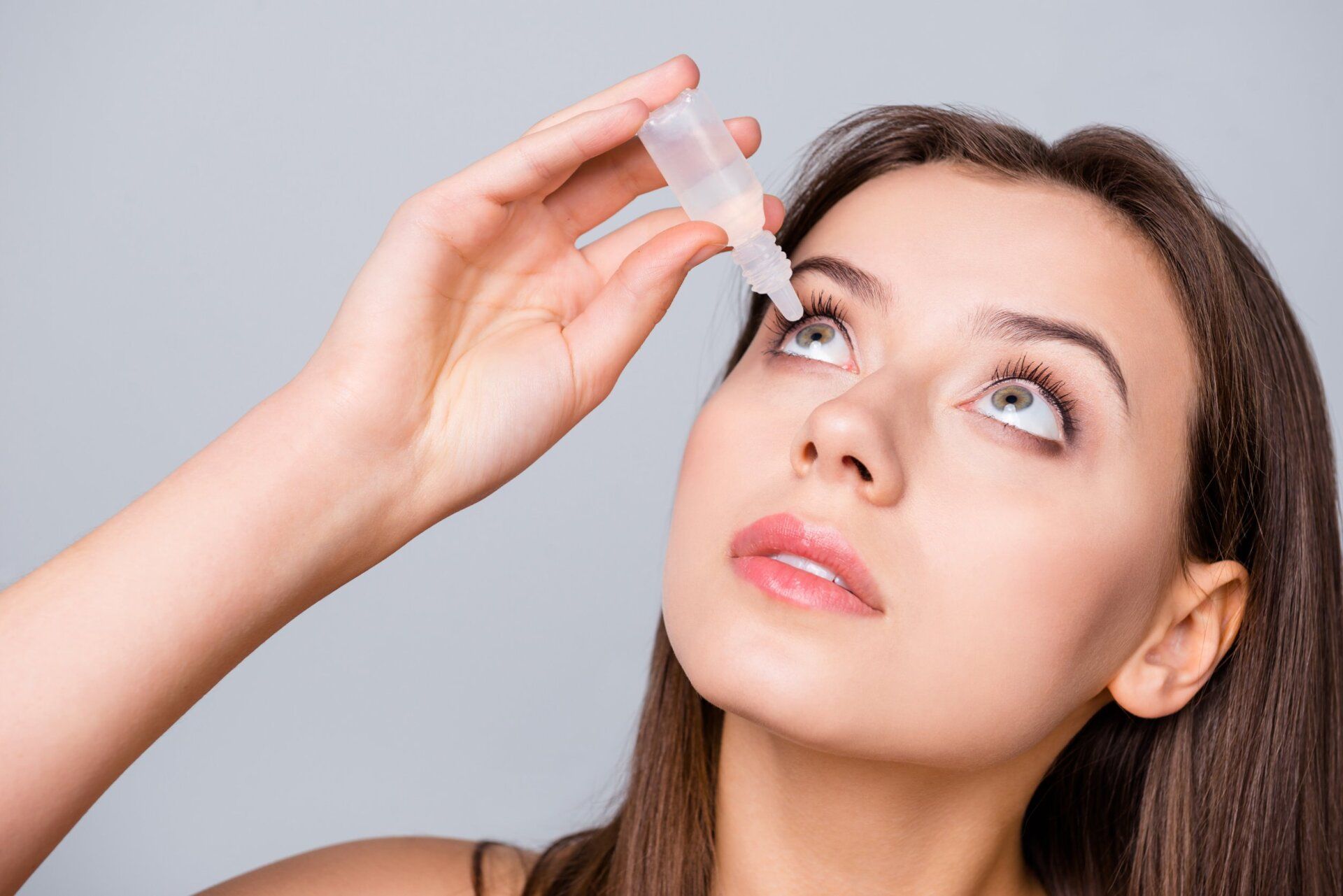
How to Apply Eye Drops and Clean Your Eyes After Cataract Surgery
Two of the most important things you’ll need to do throughout the recovery process is apply eye drops – which your eye doctor prescribes to you – and clean your eyes often – without getting soap or water in your eye. Don’t worry, we’re going to go over everything you need to know!
First, let’s go over some useful tips to follow when applying eye drops in the weeks following cataract surgery:
- Only use eye drops on the eye(s) that were operated on
- Start using your eye drops regularly the day after the surgery
- Get in the habit of taking your eye drops in the morning
- Before applying the eye drops, make sure your hands are clean
- Only stop using the eye drops if directed to by your eye doctor
- Don’t let any of your friends or family members use the eye drops
- Tilt your head back and look up at the ceiling when applying eye drops
- All you need is one drop of the liquid inside the eye
- Try to avoid touching your eye with the top of the bottle
Your cataract surgeon will also give you strict directions when cleaning your eyes – here are some tips to follow:
- Boil a pot of water and let it cool
- Before washing your eyes, wash your hands
- Once the water has cooled, dip a cotton wool or clean gauze in it
- Wipe the eye with the damp wool or gauze
- Avoid wiping the inside of your eye
- Instead, wipe from your nose to the outside corner of the eye
- Avoid washing the eye out with water
- Avoid pressing too hard on your eye
Since everyone’s eyes are different, the recovery process won’t look the same for everyone. With follow-up appointments during the healing process and regular appointments once fully recovered, you can put your eye health in a better position moving forward – which is a true blessing.
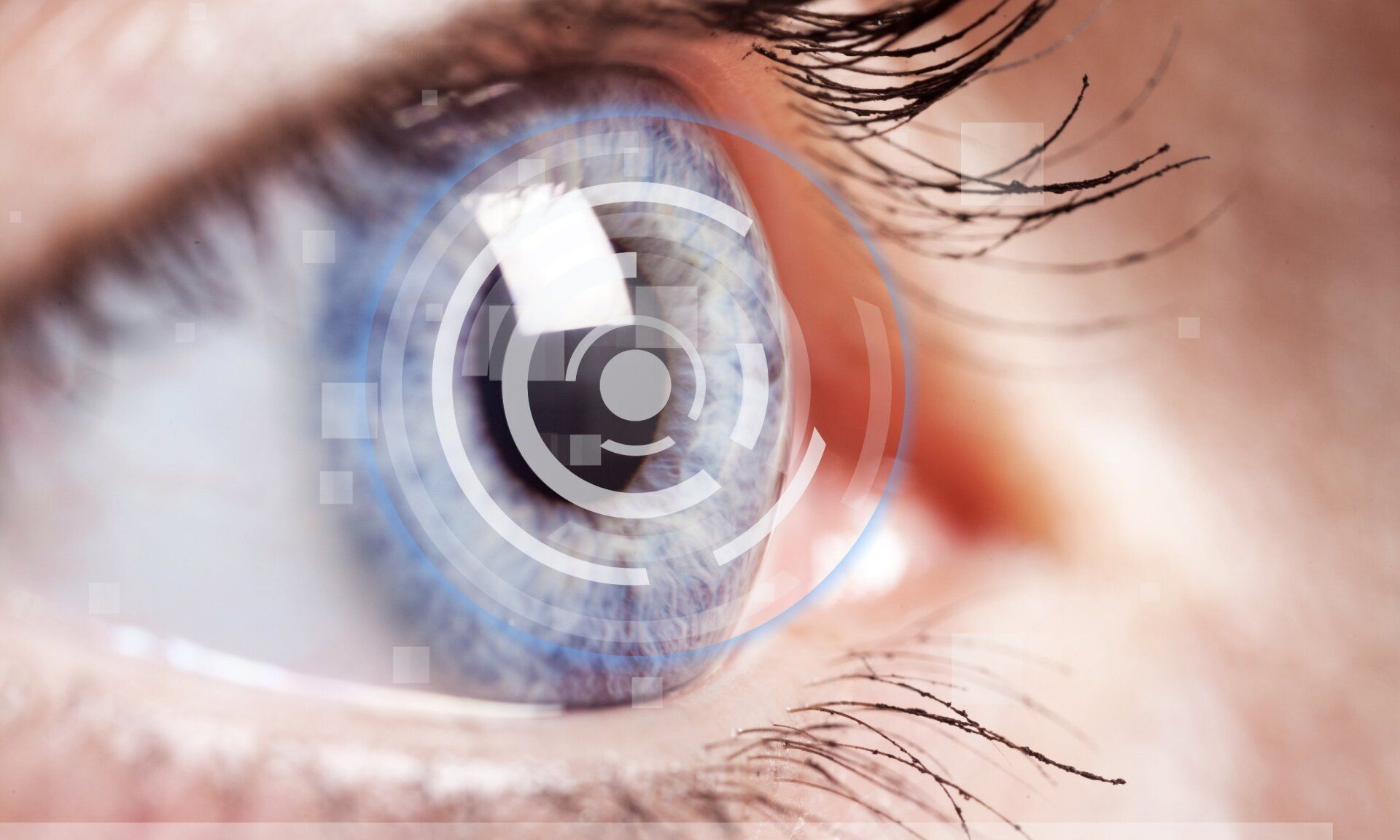
FAQ About Recovering From Cataract Surgery
At Holly Springs Eye & Laser, we understand cataract patients have a lot of questions to ask us regarding the recovery process – after all, determining if cataract surgery is right for you is a complex decision. Don’t worry, we’re going to hopefully answer some of those questions below:
- How long after cataract surgery can you bend over? To avoid adding extra pressure to the eye, avoid bending over for at least 1-2 weeks after cataract surgery.
- How long after cataract surgery can you drive? You should wait at least 24 hours before driving after cataract surgery, unless noted otherwise by your doctor.
- How long after cataract surgery can you exercise? To avoid injury or damage to the eye(s) that were operated on, avoid strenuous exercise for at least four weeks.
- What is the correct sleeping position after cataract surgery? When sleeping, it’s best to sleep on your back or on the opposite side that was operated on.
- How long after cataract surgery can I wear makeup again? You should wait at least 1-2 weeks before wearing eye makeup, but some patients may need to wait one month.
- When can I stop using eye drops after cataract surgery? Many patients will need to continue using eye drops for 3-6 weeks after cataract surgery.
If you have any questions about laser cataract surgery – whether it’s about the surgery itself or the cataract surgery recovery time – don’t hesitate to contact Holly Springs Eye & Laser right away. We understand how stressful blurry or unclear vision can be and we’re honored to help you find lasting relief.
To schedule an appointment with Dr. Faraaz Khan and meet the rest of his friendly staff, you can call or text us at 919-689-8920, email us at hello@hollyspringseyeandlaser.com, or fill out our online form. We can’t wait to help you achieve clear vision and optimal eye health long-term!





